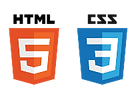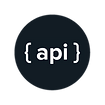Programs
Software Development Engineer in Test (SDET)
An SDET is a developer who instead of working in the product development team, works as part of the test team.
In essence, SDETs are responsible for the following:
– Writing code
– Testing code
– Providing amendments to code based on testing results
– Roles and responsibilities are based on the Agile lifecycle model
– Providing strong analytical, technical, and problem-solving skills alongside a degree of professionalism.
On the other hand, QA Engineers are testers who do not need to have any programming experience as they usually are not exposed to the code but share other noncoding responsibilitiesLorem ipsum dolor sit amet, consectetur adipiscing elit. Ut elit tellus, luctus nec ullamcorper mattis, pulvinar dapibus leo.


Quality Training
TechCircle training curriculum reflects the current and developing demands of the United States IT job market

Alumni Support
TechCircle supports its alumni with one-on-one technical consultations and with its LifeTime continuing education support.

Consulting
TechCircle gives advice and their support provided by working IT professionals to students, to help the students manage their journey through 6 months, learn, and build resumes.
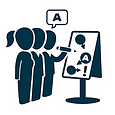
Development
Students will undergo to evolve their occupational status. Students will be able to make decisions for long-term learning, to align their personal needs of physical or psychological fulfillment with career advancement opportunities.

IT Training
TechCircle programs are designed and taught by Instructors with industry experience and certifications, assisted by alumni teaching assistants, mentors from the industry, and market preparation professionals.

Job Placement
TechCircle makes sure every one of its students finds a job and supports its students with all the resources necessary.
Technologies
What you'll learn?
- Database SQL
- Test Automation
- Computer Networking
- Introduction to Unix
- Manual Testing
- Quality Assurance
- Selenium WebDriver
- Cucumber BDD
- Rest API – Services Testing
- Java programming
- GitHub
- Jenkins CICD
- TestNG
- Jira Project Management Tool
- GSuite
Coding Bootcamp vs College
There are many considerations to make when choosing whether to learn to code at a coding bootcamp, or by doing a computer science degree at university. Coding bootcamps are around 3 to 6 months long, intensive, teach you very practical, applicable, up-to-date skills, and give you career coaching, but are not usually accredited, so you do not get a qualification. If you attend a coding bootcamp you will need to prove your skills through your portfolio. CS degrees are around 4 years long, cover in-depth theoretical material, teach you established programming practices, and provide you with a degree to show for it, but you will still need to prove your skills in a technical interview. Coding bootcamps cost between $10,000-$20,000 all up front, whereas CS degrees can cost up to $20,000 per semester. TechCircle will cost a student between $7,900-$8,900.
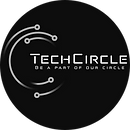
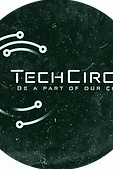
Return on Investment
Whenever you make a purchase whether it’s a car, home, or an educational program, it’s always wise to calculate your ROI. While traditional college graduates are facing unparalleled unemployment rates throughout the nation with no end in sight, most coding graduates secure a job within 3 months of graduation. Since these accelerated learning programs thrive on their job placement rates, it’s equally important to schools that graduates are placed.
Timewise, ROI’s a no-brainer – most coding Bootcamp graduates invest 3-6 months in a program, while college students invest 4 years. But what about the financial investment? The average starting salary of a TechCircle coding Bootcamp graduate is $102,000. A CS degree graduate can expect an average salary of $40k-55K. For a fraction of the time investment, coding Bootcamp graduates will earn more than computer science graduates.
When it comes to ROI, TechCircle coding Bootcamp requires less time, less money and offers more earnings when compared to a CS degree.
Curriculum
Curriculum in TechCircle coding Bootcamp and CS degree programs vary widely, even among their respective counterparts.
CS degree programs often cover the following components:
- Programming in C++
- Operating System Design
- Computer Science Theory
- Advanced Mathematics
- Algorithms
- Non-IT related contents
TechCircle Bootcamp curriculum components include:
- Programming in Java
- SQL
- Database
- Selenium Automation
- TestNG/jUnit
- Cucumber
- Agile Methodologies
- SDLC
- GitHub
- Jira Management Tool
- Jenkins CICD
- APIs
- Postman
- Career Coaching
- Resume Build


Career Outlook
The decision on whether you should join a bootcamp or pursue a computer science degree depends in large part on your career goals.
Your final career goals (think 20 to 30) years from now are just as important to consider as the cost and curriculum.
Large corporations like Apple, Amazon or Google, will not require a CD degree. Join the TechCircle program, you will be able to obtain a high-earning income in one of the big tech companies. Most of these companies provide free resources and tuition reimbursements if you choose to get a CS degree.
After Bootcamp, you can earn a 6 figure income and have your company invest in your education. That way, you will get paid to learn and escape the Student Loans










